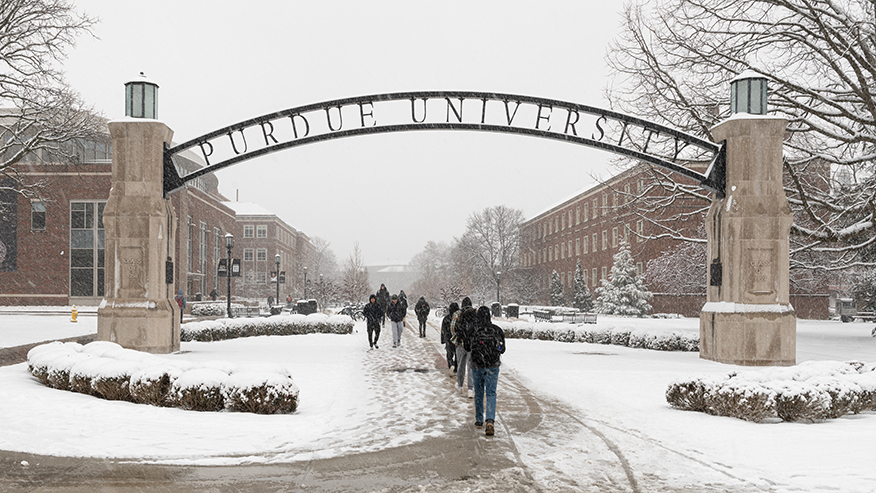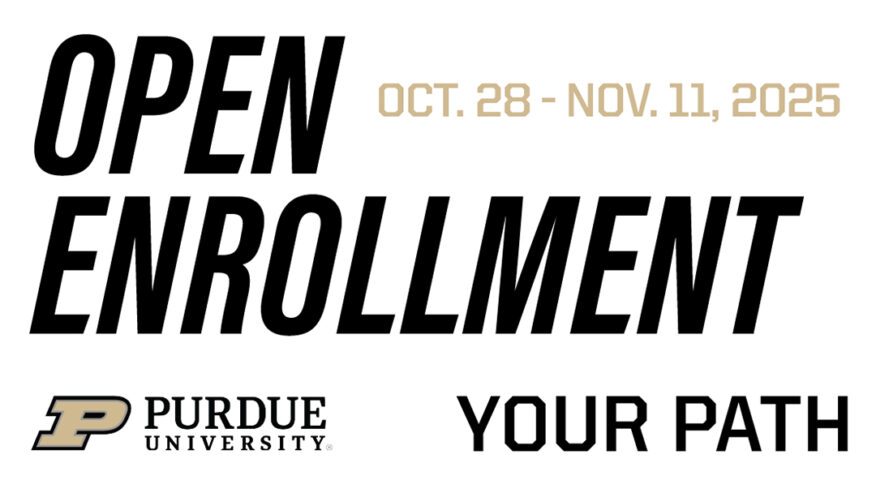What’s a life worth? Presidential Lecture Series guest to discuss his role leading 9/11 victims fund, others spawned by tragedies

Attorney Kenneth R. Feinberg oversaw the 9/11 Victim Compensation Fund following the terrorist attacks on Sept. 11, 2001, and he has administered other compensation funds including those for the BP Deepwater Horizon Gulf oil spill, the Virginia Tech and Sandy Hook shootings, the Boston Marathon bombing and the Indiana State Fair stage rig collapse that killed seven people and injured more than 100 in 2011. (Photo provided)
WEST LAFAYETTE, Ind. —
Washington, D.C., attorney Kenneth R. Feinberg might not be well-known beyond the Beltway. But his remarkable work the past 35 years as the nation’s leading mediator in the most complex disputes and compensation claim cases certainly is.
After all, how many people can say you were portrayed in the movies by an Academy Award-winning actor. In “Worth,” released by Netflix to coincide with the 20th anniversary of the 9/11 terrorist attacks, Michael Keaton plays Feinberg. The film was adapted from Feinberg’s 2005 book, “What is Life Worth?”
“It was a surreal experience watching that movie come to the screen, but I thought they did a pretty good job of conveying the challenges we faced,” Feinberg says. “Now if you ask my children, they’ll say, ‘Dad, it’s a pretty good movie. Michael Keaton is a great actor, but when it comes to playing you, he should stick to Batman and Beetlejuice.’”
Feinberg will join Purdue President Mitch Daniels as part of Presidential Lecture Series at 6:30 p.m. Feb. 1 in Stewart Center’s Loeb Playhouse. The event is titled “What’s a Life Worth? When tragedy strikes, how do you do the impossible: Calculate the dollar value of the lives lost?”Sponsored by the Purdue President’s Council, the event is free and open to the public and also will be livestreamed. Visitors to campus are required to wear masks in indoor settings and follow Protect Purdue guidelines.
Time and again, Feinberg has been assigned the unimaginable task of determining the value of a lost life. Most notably, in the aftermath of the terrorist attacks, he served as special master of the 9/11 Victim Compensation Fund, overseeing distribution of more than $7 billion to 5,562 survivors and victims’ families.
A former prosecutor and member of two presidential commissions, Feinberg has overseen billions of dollars in victim compensation funds following other tragedies, including the 2008 financial crisis, BP Deepwater Horizon Gulf oil spill, Virginia Tech and Sandy Hook shootings, Boston Marathon bombing, Pulse nightclub tragedy in Orlando and clergy abuse.
Feinberg also was tapped in 2011 by then-Gov. Mitch Daniels to manage the fund following the Indiana State Fair stage rig collapse that killed seven people and injured more than 100.
Before his role as special master of the 9/11 fund, he oversaw the Agent Orange Victim Compensation Program, a $197 million settlement fund for 52,000 Vietnam War veterans, and handled cases involving asbestos poisoning.
In case after case, the focus of these efforts was on the victims of the tragedies, not the compensation fund administrator with the bureaucratic title, says Feinberg of the low profile he has preferred over the years.
“When you’re offering people money who have suffered grievous harm and loss, you don’t want to be on Facebook. You want to avoid social media as much as possible,” he says. “I’m never called for the creation of any of these funds. It’s when Mitch Daniels calls you, John Ashcroft calls you, or Gov. Deval Patrick and Mayor Menino after the Boston Marathon bombings. They called. And you respond as a citizen, as a patriot. If you can give back to the country by designing and administering these programs, you do it. And you do it as long as you’re successful.”
Yet when Feinberg is called on to oversee a fund after one of these tragedies, he dismisses the role of “playing God” in calculating a life’s value. That, he says, is done across America every day – in every courtroom, in every city, county, village, town. Two basic questions are at the heart of the matter: What would the victim have earned over their work life? And how much additional compensation for pain, suffering and emotional distress is appropriate? Feinberg, however, describes that process in our U.S. courts system as “a rather cold calculation.”
“Our American courts don’t look into dignity, courage, loyalty, love, integrity,” Feinberg says. “What makes this job so difficult – and so debilitating – is the emotion. It’s the emotion when you’re designated as the individual to bear the brunt of the reaction of victims and their families and innocent victims to a horror that nobody contemplates. You never get over it. You become less a lawyer and more priest, a rabbi or a psychiatrist in meeting privately, in confidence with individual claimants, and that is horrific and extremely debilitating.”
9/11 and Mitch Daniels
As chief of staff of the late U.S. Sen. Ted Kennedy, Feinberg would join a nation in navigating the emotional considerations that arose after 9/11 as America confronted the reality that this was a terrorist attack from a foreign foe on U.S. soil.
Additionally, how could a fund address the thousands of claims from the attacks while protecting the airline industry and the broader U.S. economy? And would political and potentially partisan bickering come into play over a clear federal statute that gave Congress the authority to use taxpayer funds to pay the 9/11 claimants?
Feinberg recalls then-U.S. Attorney General John Ashcroft telling him, “I talked to Sen. Kennedy, and I’m very interested in you being considered for this very important assignment. But you better get down and talk to Mitch Daniels at OMB. So I went down to the OMB, not knowing what to expect. And Mitch Daniels was incredible.”
In discussions with Daniels, then-director of the Office of Management and Budget for the Bush administration, Feinberg recalls concerns about how the public might react to a generous compensation program. “And Mitch said to me, ‘You know, there’s a lot of value, Ken, in having Senator Kennedy’s chief of staff doing this. If it works, we selected you. And if it fails, what would you expect? He’s Kennedy’s guy?’”
Daniels knew Feinberg’s track record and pledged he would support him every step of the way. “Let’s do it right,” Feinberg recalls Daniels saying. “It is not a political assignment. It’s a very historical and sensitive assignment.”
Over the next 33 months, Feinberg says, Daniels would seek a status report with reminders that he was there to troubleshoot any obstacles – from Congress, the White House, the Department of Justice – that got in the way.
“He (Mitch) was just a fabulous partner in making sure I was given a free rein with my expertise to go forward with the program and not be sidetracked by politics or personal criticism, Feinberg says. “He was just terrific, and he’s been terrific ever since.”
In all, $7 billion was awarded tax-free to 97% of the affected individuals and families, and Feinberg personally presided over 900 of the 1,600 hearings. After the program’s success, Feinberg recalls Daniels saying, “‘Ken, the program worked. It turned out to be sound public policy. Let’s not ever do this again. This is a one-off response to an unprecedented tragedy in American history. But it’s a precedent for nothing. Let’s not replicate it.’ And I agree with him on that.”
A decade later, a windstorm swept through the Indiana State Fairgrounds on Aug. 13, 2011, killing seven people when the stage collapsed during an outdoor concert by Sugarland. Then-Gov. Daniels immediately contacted Feinberg, who canceled his appointments for the next week and flew to Indianapolis to meet with Daniels. “I told him I’ll do it, but that I didn’t want to be paid for this, to help people with victims,” Feinberg told Daniels. “Once again, Mitch was my leader and really pointed me in the direction of what he wanted to accomplish.”
Lawyer or spiritual advisor
During Feinberg’s formative years when he was 9, a cantor at his family’s synagogue in Brockton, Massachusetts, sparked an interest in Hebraic melodies as well as opera and classical music. And that deep love of music, as the movie “Worth” depicts, has been a very important part of Feinberg’s life as a way to shut off, or apply a salve, in dealing with the horrors of our world.
“I find that as a relief from stress. Listening to the height of civilization – I mean, really, Beethoven and Brahms – is such a reinforcement for me that the world is really filled with good people and creative geniuses who want to do the right thing,” he says. “And I get tremendous personal relief and satisfaction that no matter how bad things may appear to be during the day – dealing with the horrors of civilization – to sit back and listen to what civilization can bring to human beings, the genius of these people is a tremendous palliative.”
While successful in his preceding years as a litigator, Feinberg says there’s no textbook, no law journal that can prepare anyone for the emotional toll of meeting with a 9/11 victim who has burns over 90% of their body, or the surviving widow of a lost New York City firefighter struggling with terminal cancer who now must find a way to care for their two children.
“All the training you’ve had over the years as a lawyer doesn’t stand you very much in good stead,” he says. “No, better to have a divinity degree or a degree in psychiatry. The stories from individuals were chilling, just absolutely chilling. And yet, you have to afford them that opportunity.”
In fact, few family members wanted to talk about money or compensation, Feinberg recalls from his many personal meetings for the 9/11 fund and other cases. Instead, these sessions gave the families an emotional release and an opportunity to memorialize lives well lived.
“People wanted to let the steam out of the pressure cooker and then at me: ‘How could I lose my daughter? She was an angel, she’s gone. Don’t tell me, Mr. Feinberg, that there’s a God. No God would allow this to happen,’” he says.
“A second reason they came to see me was to validate the memory of the lost loved one. ‘Mr. Feinberg,’ they’d say, ‘I lost my wife at the World Trade Center. And at this private hearing now, I’d like to show you a video of our wedding 25 years ago.’ I would say, ‘Mr. Jones, you don’t have to show me that video. It won’t have any bearing on compensation. But they would insist, ‘You’re going to watch! I want you to see what those murderers did to my angel. Play the video.’”
From these countless, emotion-filled interactions, Feinberg says, he’s come to understand that “money is a pretty hollow substitute for a life. You just do the job, get out and hope and pray that there won’t be another one.”
What’s a Life Worth? When tragedy strikes, how do you do the impossible: Calculate the dollar value of the lives lost?
- Feb. 1
- 6:30-7:30 p.m.
- Stewart Center, Loeb Playhouse + simultaneous livestream Purdue YouTube channel
- Series sponsors: Purdue President’s Council
About Purdue University
Purdue University is a top public research institution developing practical solutions to today’s toughest challenges. Ranked in each of the last four years as one of the 10 Most Innovative universities in the United States by U.S. News & World Report, Purdue delivers world-changing research and out-of-this-world discovery. Committed to hands-on and online, real-world learning, Purdue offers a transformative education to all. Committed to affordability and accessibility, Purdue has frozen tuition and most fees at 2012-13 levels, enabling more students than ever to graduate debt-free. See how Purdue never stops in the persistent pursuit of the next giant leap at https://purdue.edu/.
Writer: Phillip Fiorini
Media contact: Matthew Oates, 765-586-7496 (cell), oatesw@purdue.edu, @mo_oates
Note to journalists:
Journalists visiting campus should follow visitor health guidelines.



